Solar power brings renewable energy to hospitals in Yemen
December 27, 2023

26 September Hospital in Matnah, Bani Matar, Sana’a, Yemen with solar panels on its rooftop. These solar panels are provided through the UNDP HEAL project funded by the Kuwait Fund for Arab Economic Development.
Protracted conflict in Yemen has severely undermined healthcare services, with 46% of health facilities currently either partially operational or completely out of service for various reasons, including fuel shortages. This has led to a decline or complete cessation of healthcare services, severely hampering people's access to essential medical care. These circumstances underscore the urgent need for alternative power sources to maintain the operation of healthcare facilities and guarantee an uninterrupted provision of healthcare services.
With support from the Kuwait Fund for Arab Economic Development, UNDP is carrying out renewable energy projects at Al-Jumhori Hospital in Hajjah, 26th September Hospital in Sana'a, Al-Shaheed Muhnaf Hospital in Abyan, and Al-Waht Hospital in Lahj. These initiatives are a part of the Renewable Energy Improve Access to Health Services and Livelihood Opportunities (HEAL) Project.
"Most medical equipment that uses electricity is life-saving, and even a brief power outage can mean the loss of a life." - Khaled Al-Abdali, Head of the Emergency Laboratory Department at Al-Jumhori Hospital in Hajjah.
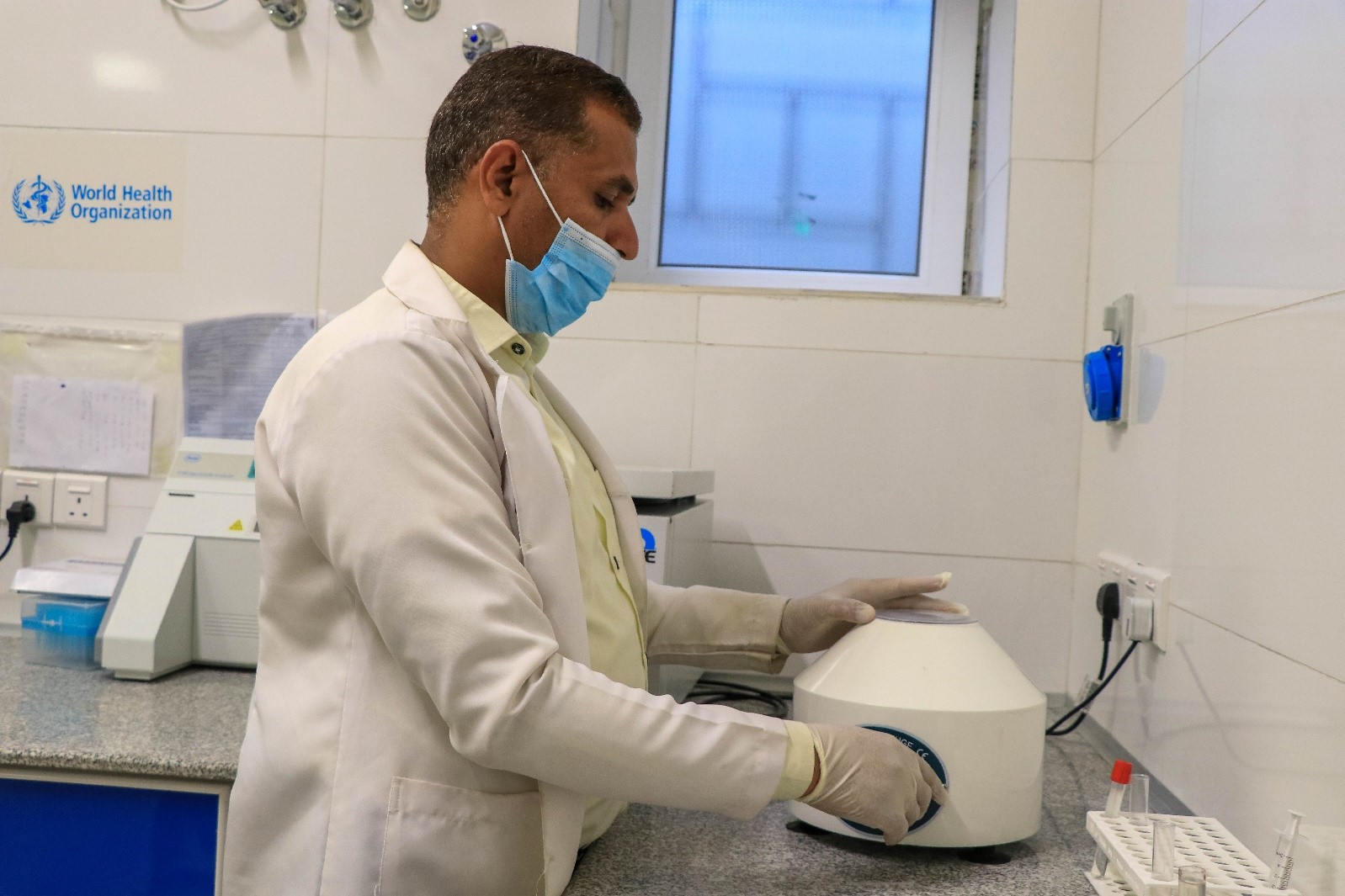
Khalid Wahan Ali Al-Abdali, clinical laboratory specialist in Aljumhoori Hospital. As part of the UNDP HEAL project funded by Kuwait Fund for Arab Economic Development, this hospital in Hajjah, Yemen, was supported with solar panels.
Khalid Wahan Ali Al-Abdali, clinical laboratory specialist at Al-Jumhori Hospital, emphasizes the crucial role of solar energy systems in ensuring the delivery of medical services to patients. "This system harnesses electricity from alternative and low-carbon energy sources, enabling the hospital to maintain its services across all departments, especially the laboratory," he explains. "Following the implementation of this intervention, we witnessed a significant improvement. Electricity supply became consistent, and services are now provided without any disruptions caused by power outages," he affirms.
Sustainable and cost-effective services
"The solar energy system is a vital and cost-effective project for the hospital, as it significantly reduces the financial expenses incurred for purchasing diesel for electric generators," explains Ali Hizam Haroun, an electrical technician at Al-Jumhori Hospital in Hajjah. "This project includes the installation of approximately 240 solar panels with a power capacity of 460 watts, along with batteries and other essential components. ”In addition to the experience I gained during the project's implementation, dozens of workers have acquired new skills that qualify them to work in similar jobs. Those skills will become a source of income that helps them cope with their challenging living conditions,” he states.
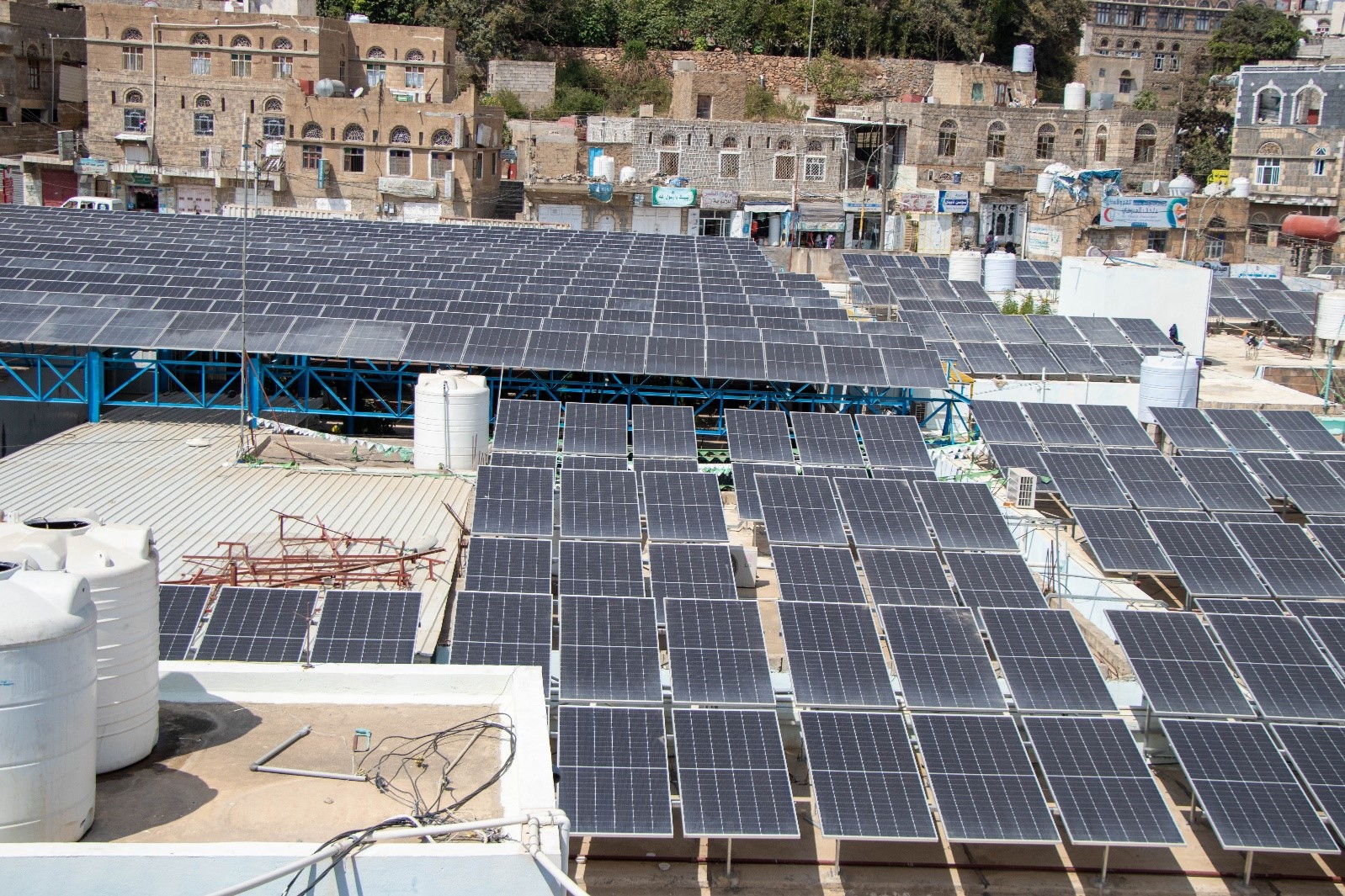
Solar panels on the rooftop of Al-Jumhori Hospital in Hajjah, Yemen. These solar panels were provided by UNDP’s HEAL Project, funded by the Kuwait Fund for Arab Economic Development.
Keeping hospitals operational
As part of the renewable energy project implemented by UNDP, 26th September Hospital in Sana'a Governorate was equipped with a solar energy system to improve the hospital's operational capacity.
"A solar energy system is crucial for the hospital's operations; without a reliable power source, our work is severely hampered as generators would stop due to diesel fuel shortages," explains Sadiq Al-Jaadbi, a 33-year-old laboratory technician at 26th September Hospital. "In the absence of electricity, patients' health could deteriorate, leading to complications. Therefore, solar energy systems not only contribute to reducing fuel consumption costs but also alleviate patients' suffering. "Having a stable electricity supply across all hospital departments has significantly improved the overall experience for patients, making it easier for them to receive high-quality care," he adds.
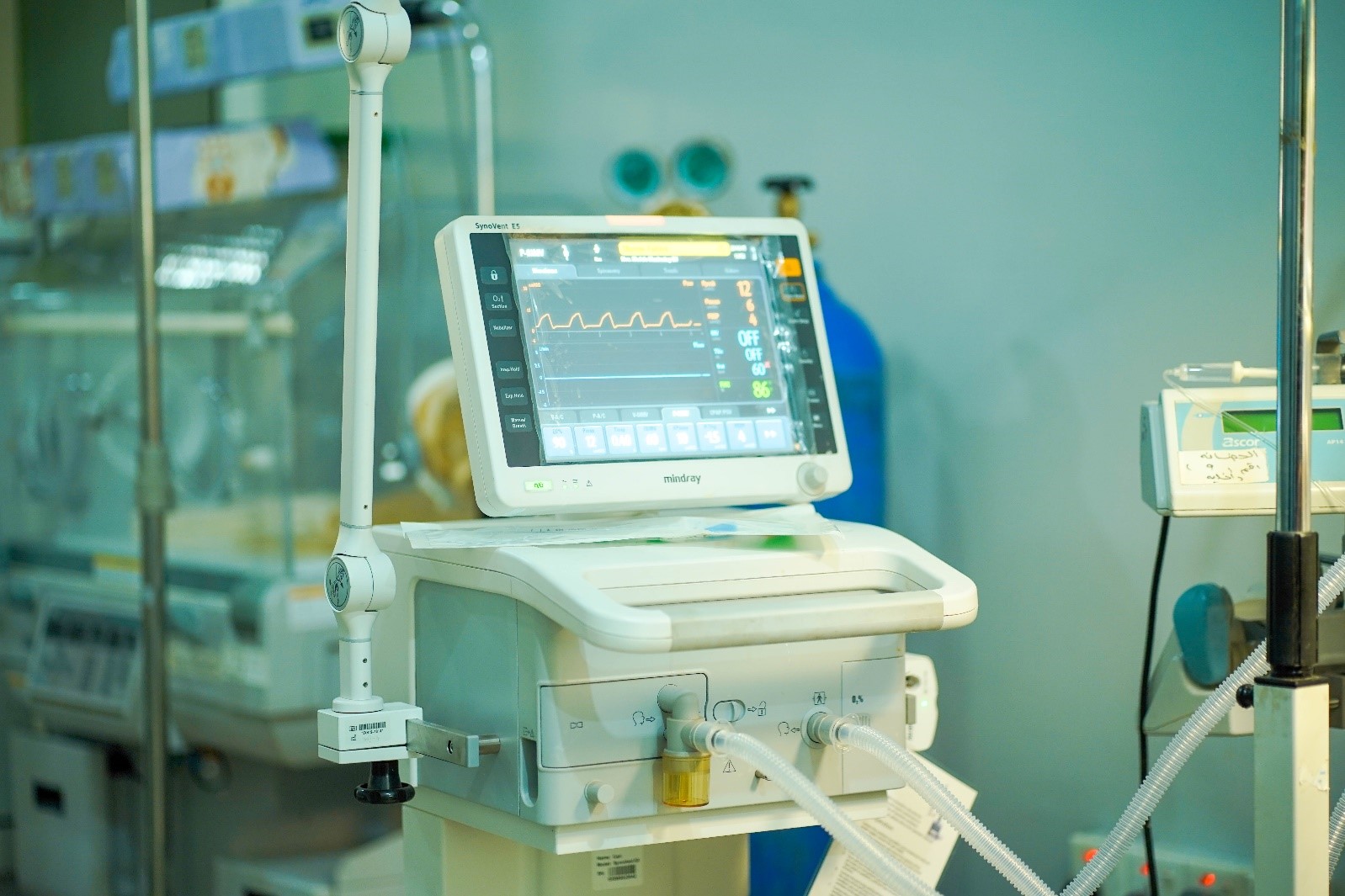
The pulse oximeter in the Intensive Care Unit is powered by the solar panels in 26th of September Hospital in Matnah, Bani Matar, Sana’a, Yemen.
Over-reliance on electric generators can pose a significant threat to patients' lives and negatively impact the quality of healthcare services. Iman Abdel Latif Al-Huraish, a nurse at 26th September Hospital, highlights the project's critical role in providing a reliable electricity supply to the hospital, particularly the neonatal intensive care unit, which contains life-saving incubators. "Power outages endanger the lives of patients in intensive care units and operating rooms and put infants in incubators at risk, as they need treatment and temperature regulation. Therefore, this project ensures a stable electricity supply, enabling us to continue providing uninterrupted and high-quality healthcare services to children,” she explains.
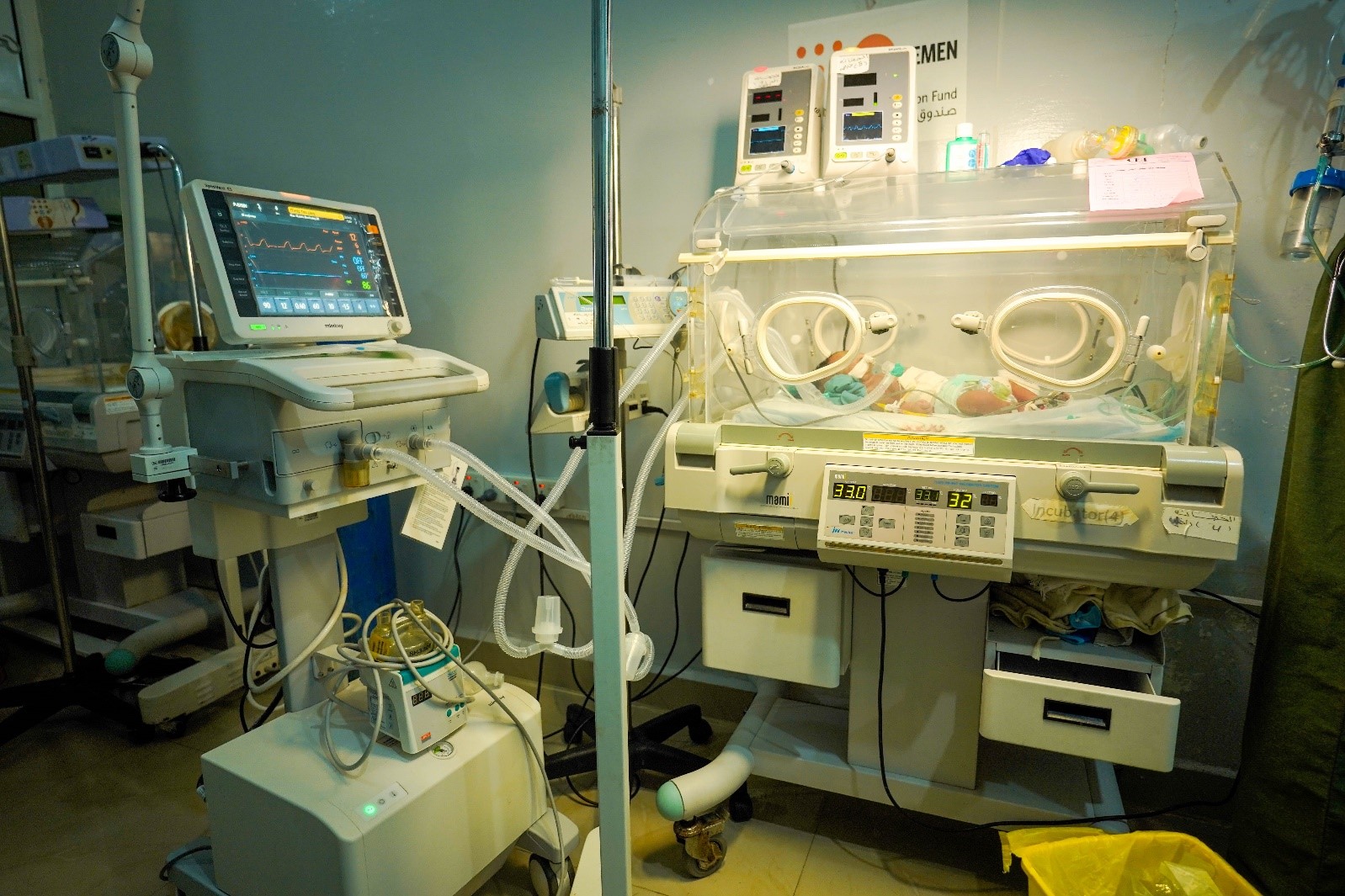
The Neonatal Intensive Care Unit at 26th September Hospital in Matnah, Sana’a functions through the solar system provided by UNDP’s HEAL Project, funded by the Kuwait Fund for Arab Economic Development.
Better access to healthcare services
"Our hospital serves people in Hajjah Governorate as well as patients coming from other governorates, including Al Hudaydah, Amran, and Al-Mahwit,” highlights Dr. Ibrahim Al-Ashwal, Head of Al-Jumhori Hospital. “We used to rely on diesel generators for electricity, which incurred significant costs for fuel purchases. Installing a solar energy system at the hospital means operating medical equipment in various departments, and enables our staff to provide high-quality healthcare services to patients,” he adds. Dr. Al-Ashwal further highlights the environmental benefits of the project. "In addition to generating clean and environmentally friendly energy, this project will reduce noise pollution and carbon emissions, creating a healthier environment for patients and staff alike."
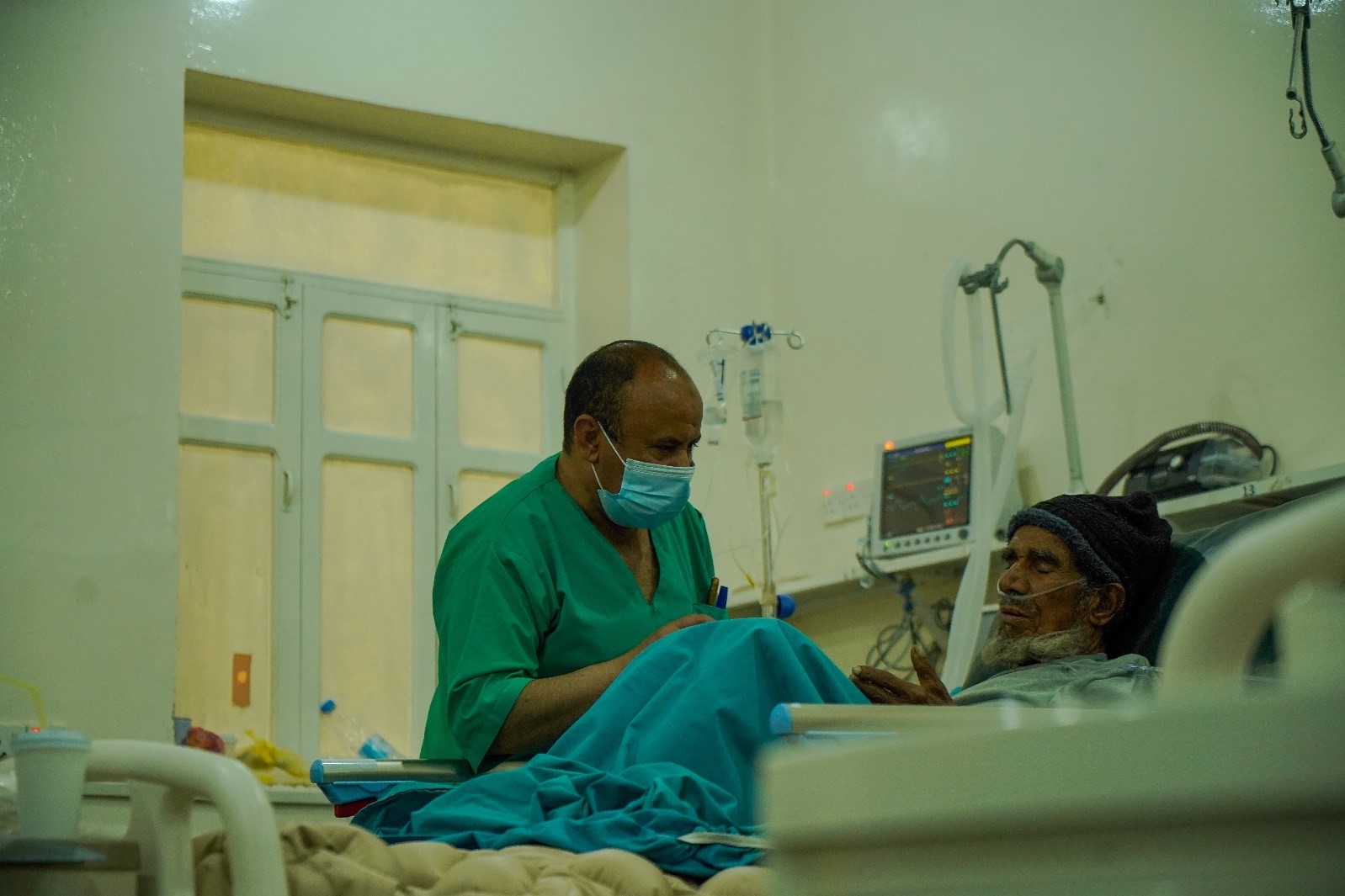
A patient and a nurse in 26th September Hospital in Matnah, Bani Matar, Sana’a, Yemen.
About the HEAL Project
With support from the Kuwait Fund for Arab Economic Development, UNDP is providing four hospitals in Yemen with solar power to resume critical services. The HEAL Project addresses the lack of access to energy in health facilities as well as the lack of income opportunities for women and youth in in Aden, Lahj, Abyan, Sana’a and Hajjah governorates, reaching over 200,000 individuals. The project will also promote economic empowerment models for women and youth through the use of solar micro-grids.

 Locations
Locations



